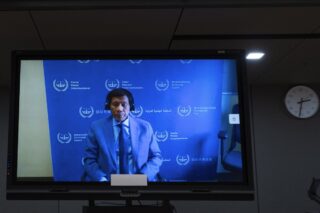Even before the pandemic struck, the excessive workload and administrative obligations of public health nurses were brought to light, prompting calls for developing new cadres and the review of staffing standards.
To allow advanced practice nursing, it is vital to harmonize scopes of practice, update current professional laws, and promote collaboration among health workers in areas such as patient screening, assessment, diagnosis, prescription management, treatment planning, and other basic medical interventions. It is crucial to find a common understanding among all stakeholders, including doctors, that health needs are evolving, and that the current state of the health-care system calls for reimagining the way we approach these challenges.
While many other issues surround the health system, implementing advanced practice nursing, especially in underserved and unserved areas, is meant to ensure that the right health workers, with the right skills, are available in the right places. This will, in turn, improve health-care access, quality, and outcomes for communities.
As we conclude the centennial year of the Philippine Nurses Association on Sept. 1, we urge our policymakers to recognize that supporting our nurses is crucial for our progress toward universal health care and readiness for future pandemics. Even more so, we remind President Marcos of his commitment made a year ago—to uplift the status and work environment of our nurses. Bills in both the Senate and House of Representatives seeking to broaden the educational and professional scopes for nurses in the Philippines are still pending committee review. A year has gone by, and we’re still far from realizing these commitments.
As the backbone of our health-care system, nurses deserve not just recognition but tangible support. Let us not just honor our nurses in words but with concrete actions that reflect our sincere gratitude and understanding of their indispensable role.
Reiner Lorenzo Tamayo, RN,
renztamayo@gmail.com



